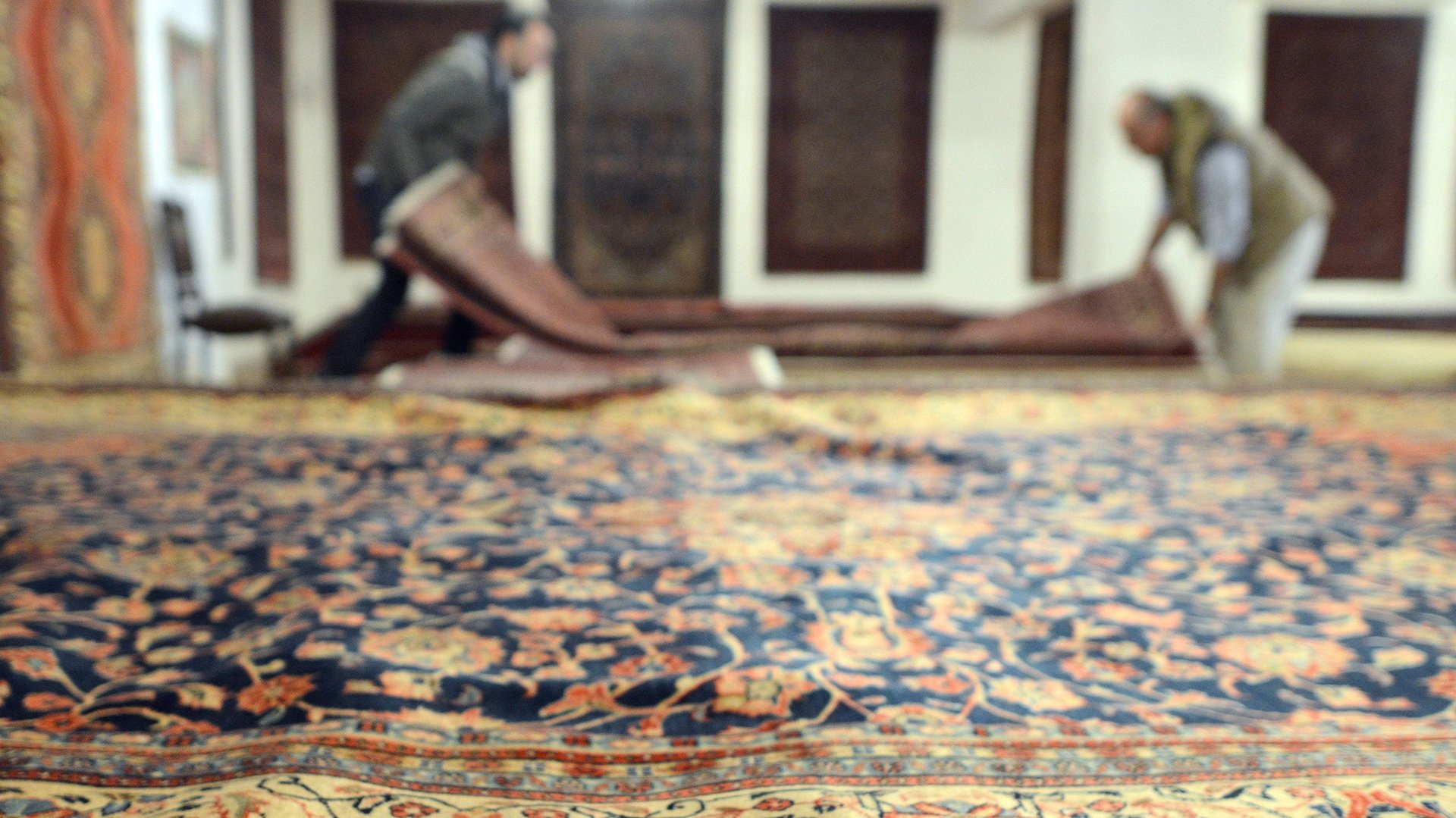America’s Persian-rug pipeline is about to dry up
Three months after US president Donald Trump signed an executive memorandum initiating America’s withdrawal from the Iran nuclear deal, a raft of US sanctions go back into effect today (Aug. 6), including a ban on Iran’s ability to export carpets to the US.


Three months after US president Donald Trump signed an executive memorandum initiating America’s withdrawal from the Iran nuclear deal, a raft of US sanctions go back into effect today (Aug. 6), including a ban on Iran’s ability to export carpets to the US.
According to the Washington Post, the import ban applies to Iranian-made rugs coming from any country; only the sale of Persian rugs already in the US is permissible. In June, online retailer Etsy told Persian rug dealers that it would “no longer be able to permit transactions of Iranian. . . carpet products.”
Last month, Fereshteh Dastpak, head of the Iranian National Carpet Center, announced plans to sue the US government over the reimposed sanctions. “The US President has wrongly sanctioned the art industry, which is a symbol of culture and intellectual property of the Iranian people,” Dastpak said on Iran’s state-run Press TV. In which court she would sue, or on what legal grounds, is unclear.
The set of sanctions is the first of two slated to go back into effect this year. According to the Treasury Department (pdf), the following sanctions will be reimposed on Aug. 6:
i. Sanctions on the purchase or acquisition of U.S. dollar banknotes by the Government of Iran;
ii. Sanctions on Iran’s trade in gold or precious metals;
iii. Sanctions on the direct or indirect sale, supply, or transfer to or from Iran of graphite, raw, or semi-finished metals such as aluminum and steel, coal, and software for integrating industrial processes;
iv. Sanctions on significant transactions related to the purchase or sale of Iranian rials, or the maintenance of significant funds or accounts outside the territory of Iran denominated in the Iranian rial;
v. Sanctions on the purchase, subscription to, or facilitation of the issuance of Iranian sovereign debt; and
vi. Sanctions on Iran’s automotive sector.
Also in effect: a ban on importation of foodstuffs and the end of some licensing transactions.
On Nov. 4, 180 days after Trump’s memorandum, a second set of sanctions will go back into effect. According to the Treasury, those include:
i. Sanctions on Iran’s port operators, and shipping and shipbuilding sectors, including on the Islamic Republic of Iran Shipping Lines (IRISL), South Shipping Line Iran, or their affiliates;
ii. Sanctions on petroleum-related transactions with, among others, the National Iranian Oil Company (NIOC), Naftiran Intertrade Company (NICO), and National Iranian Tanker Company (NITC), including the purchase of petroleum, petroleum products, or petrochemical products from Iran
iii. Sanctions on transactions by foreign financial institutions with the Central Bank of Iran and designated Iranian financial institutions under Section 1245 of the National Defense Authorization Act for Fiscal Year 2012 (NDAA);
iv. Sanctions on the provision of specialized financial messaging services to the Central Bank of Iran and Iranian financial institutions described in Section 104(c)(2)(E)(ii) of the Comprehensive Iran Sanctions and Divestment Act of 2010 (CISADA);
v. Sanctions on the provision of underwriting services, insurance, or reinsurance;
vi. Sanctions on Iran’s energy sector.
The government will also “revoke the authorization for US-owned or -controlled foreign entities to wind down certain activities with the Government of Iran or persons subject to the jurisdiction of the Government of Iran,” and will reimpose sanctions on certain Iranian individuals.